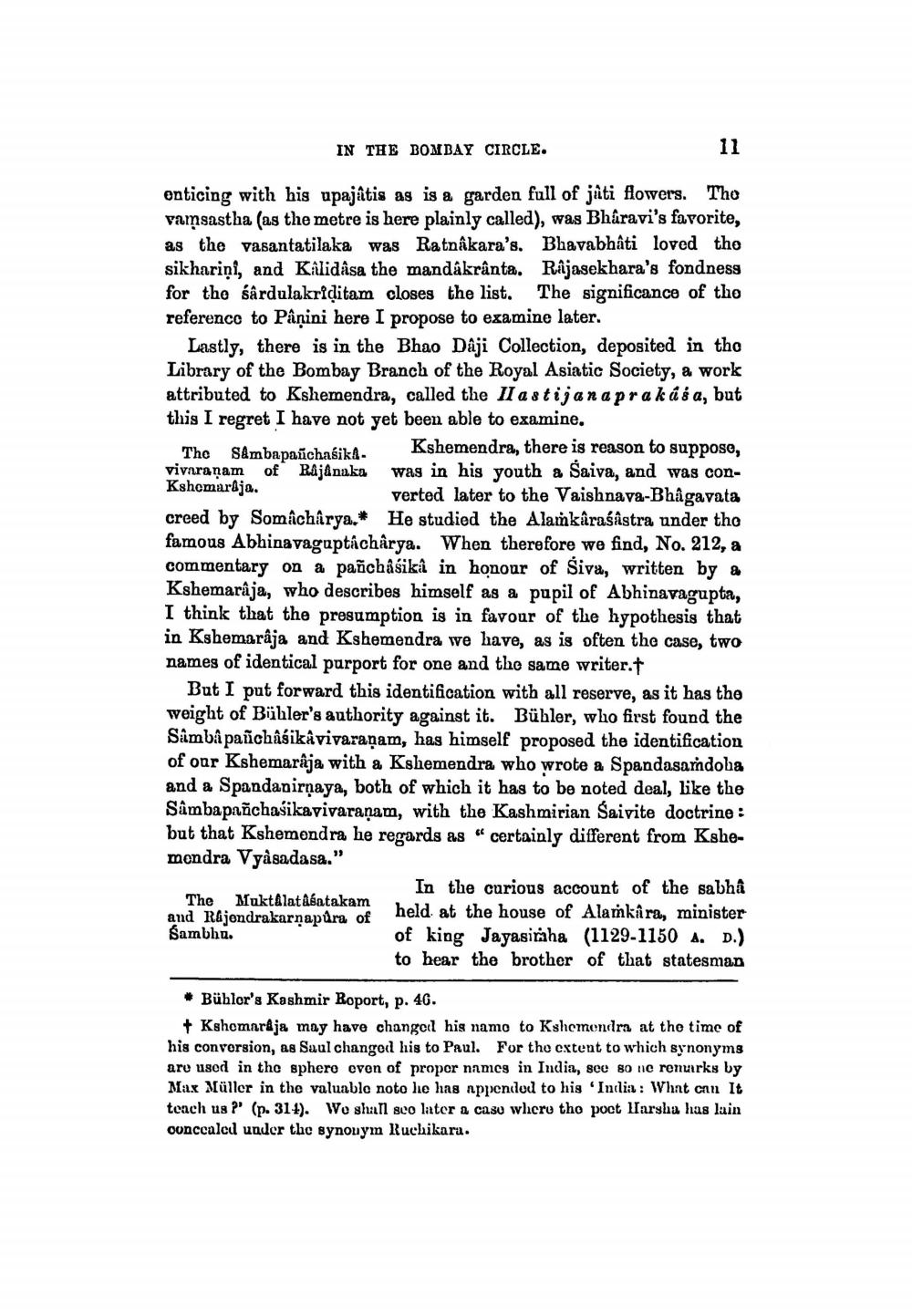________________
IN THE BOMBAY CIRCLE.
11
onticing with his upajâtis as is a garden full of játi flowers. Tho vamsastha (as the metre is here plainly called), was Bharavi's favorite, as the vasantatilaka was Ratnakara's. Bhavabhâti loved the sikhariņi, and Kalidasa the mandákrânta. Rajasekhara's fondness for the sârdulakriditam closes the list. The significance of the reference to Pâņini here I propose to examine later.
Lastly, there is in the Bhao Dâji Collection, deposited in the Library of the Bombay Branch of the Royal Asiatic Society, a work attributed to Kshemendra, called the II astijan aprakása, but this I regret I have not yet been able to examine.
E:LA. Kshemendra, there is reason to suppose, vivaranam of Rajánaka was in his youth a Saiva, and was conKshemaraja.
verted later to the Vaishnava-Bhagavata creed by Somâcharya.* He studied the Alamkâraśkstra under the famous Abhinavaguptáchârya. When therefore we find, No. 212, a commentary on a pañchåsika in honour of Siva, written by a Kshemarâja, who describes himself as a pupil of Abhinavagupta, I think that the presumption is in favour of the hypothesis that in Kshemaraja and Kshemendra we have, as is often the case, two names of identical purport for one and the same writer.t
But I put forward this identification with all reserve, as it has the weight of Bühler's authority against it. Bühler, who first found the Sâmbâ pañchâśikavivaraṇam, has himself proposed the identification of our Kshemaraja with a Kshemendra who wrote a Spandasarndoba and a Spandanirnaya, both of which it has to be noted deal, like the Sâmbapañchasikavivaranam, with the Kashmirian Saivite doctrine : but that Kshemondra le regards as "certainly different from Kshemendra Vyasadasa."
In the curious account of the sabha The Muktalat Aéntakam and Rajendrakarnapura of
held at the house of Alamkâra, minister Sambha.
of king Jayasinha (1129-1150 A. D.) to hear the brother of that statesman
* Bühler's Kashmir Roport, p. 40.
+ Kshomarája may have changeel his name to Kshemendra at the time of his conversion, as Saul changed his to Paul. For the extent to which synonyms are used in the sphero oven of proper names in India, seu 80 ne remarks by Max Müller in the valuablo noto le has appended to his 'India : What can It teach us?' (p. 314). We shall sco later a case where the poct Harsha has lain conccaled under the synouym Ruchikara.




